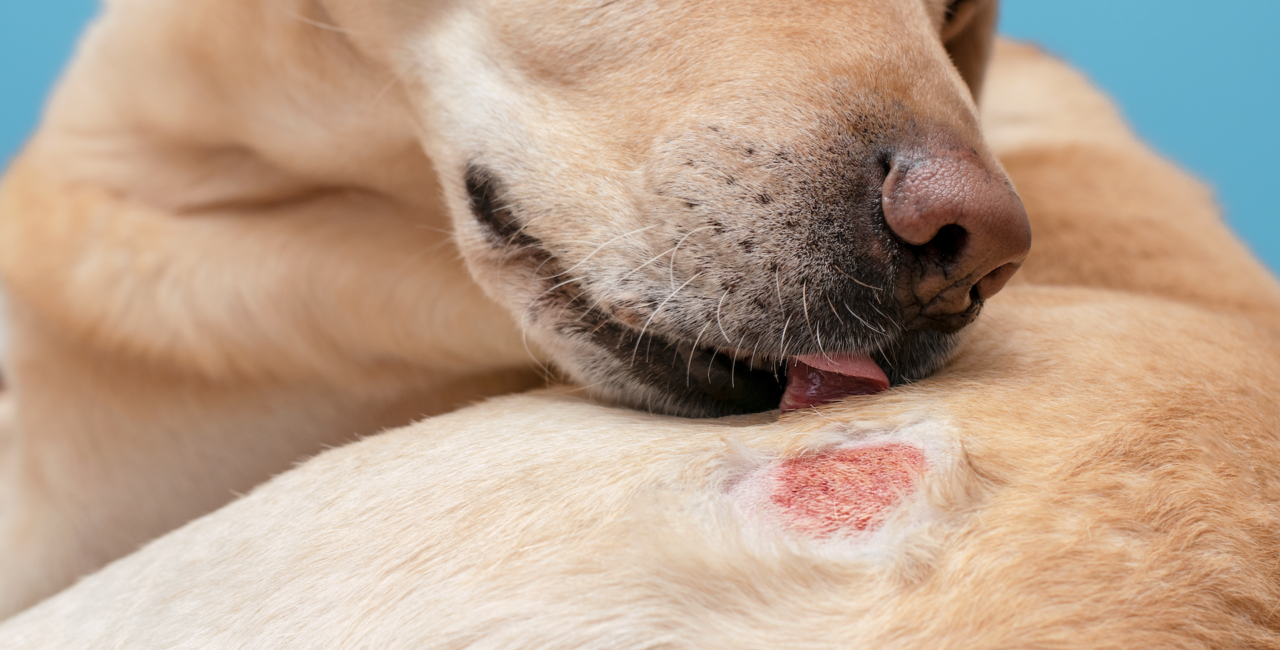By Dr. Jen Hewitt
Q: Why do you have a special interest in skin conditions affecting animals and what training have you taken to help the pets you see who are suffering with skin-related health issues?
A: My special interest in skin disease in pets is largely driven by the impact these conditions have on our pets and our relationship with them. Smelly, itchy, or greasy pets aren’t great for cuddling with! These conditions are also generally lifelong. As a result, I get to know my patients and clients well and develop long term relationships. We experience the ups and downs of their pet’s condition(s) together and develop individual treatments. In particular, allergies in pets are often varied in their symptoms and response to treatment, making management a challenge.
I have pursued additional continuing education at numerous conferences as well as one on one training with veterinary dermatologists in Canada and the United States. To date, I have accumulated over 1,000 hours in advanced training focusing on veterinary dermatology.
Q: What are signs your pet has a skin issue that needs to be seen by a veterinarian?
A: Some symptoms of skin issues in pets include:
- Dull or dry looking hair coat
- Hair loss
- Crusts dandruff
- Pimples/pustules
- Lumps
- Itching
Signs of itching include:
- Scratching
- Licking
- Chewing
- Rubbing
- Rolling
Q: What are some of the serious underlying issues that can present themselves as a skin condition?
A: Some of the more serious underlying health issues that can result in skin changes include hypothyroidism, hyperadrenocorticism, cancer, autoimmune diseases, nutritional deficiencies, fungal diseases, viral diseases, tick-borne diseases, vasculitis, drug reactions, liver disease and atypical/resistant bacterial infections.
Q: How are skin conditions assessed and diagnosed?
A: The process to assess skin conditions will vary depending on the signs and symptoms reported. However, the general approach includes a thorough history and a full physical exam including a special focus on the dermatological exam. Samples from the skin surface are collected and assessed with a microscope. Additional samples can be collected and submitted for fungal or bacterial cultures.
Additional testing may be recommended including blood and urine tests, skin biopsies, dietary elimination trial, parasite treatments, etc. As each case is unique, the diagnostic approach can vary as well. It can take many months in some cases to definitively diagnose the underlying cause of a pet’s skin condition. It can be very frustrating at times! It’s my goal to keep my client’s motivated and strive for steady improvement in the clinical signs over time.
Q: Alberta is so dry in the winter. What can pet parents do to help their fur babies skin stay hydrated?
A: Skin hydration can be supported through the use of essential fatty acids such as Omega 3/6 oral supplementation or topical essential fatty acids. Additionally, a hydrating conditioner may be used after bathing to help hydrate the skin.
Q: Why is it important for skin conditions to be examined and treated by a veterinarian?
A: As mentioned before, skin conditions can be a sign of serious underlying illness as well as significantly affecting our pet’s quality of life and our relationship with them. These conditions can be very difficult to diagnose and frustrating at times! Working with a veterinarian helps you identify the underlying cause, start treatment, and improve your pet’s quality of life in a timelier fashion.
Q: How can treating our cat and dog’s skin conditions change and improve their quality of life?
A: Pets that suffer from allergies are itchy! These pets can be extremely uncomfortable, suffer from recurrent infections, have pain or sensitivity from their skin inflammation and infections, as well as develop significant anxiety and even aggression from their symptoms.
Over time, the changes to our pet’s personality and behaviour are often unnoticed. Once they are treated, their condition’s impact becomes apparent. Pets with other underlying causes of skin diseases can similarly respond to treatments with changes in appetite, energy, and behaviour which impacts their quality of life.
If you have concerns about your pet’s skin, please call our clinic at 403-615-8016 to have an assessment with Dr. Hewitt. Her passion is healing your pets!




